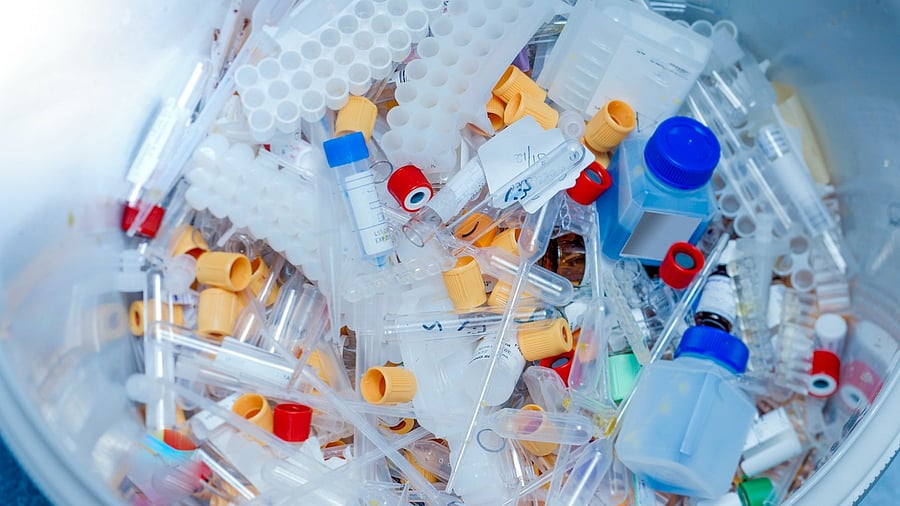
Image for representation.
Credit: iStock Photo
Karnataka has 6,274 (16.37 per cent) of the 38,318 unauthorised healthcare facilities in the country as officials strive to streamline the system to ensure proper disposal of biomedical waste (BMW), nearly nine years after the Biomedical Waste Management Rules came into effect.
Over the last three months, the Central Pollution Control Board (CPCB) has written two letters to the pollution control authorities in all the states and union territories, directing them to eliminate the gaps in the implementation of the rules. The rules require that any facility handling biomedical waste get the authorisation from the pollution control board of the state/union territory concerned.
In a letter on December 11, the CPCB told the officers to initiate action against healthcare facilities for operating without authorisation and for violating the rules for disposal. The central body also noted that deep burial of biomedical waste should be allowed for healthcare facilities in remote areas with no access to any treatment facilities.
Documents show that states and Union territories submitted details showing that a total of 38,318 facilities were not authorised. Jammu and Kashmir had the highest number of unauthorised facilities at 7,057, followed by Karnataka (6,274), Uttar Pradesh (6,196), Gujarat (4,609), Maharashtra (3,778), Kerala (2,134), Madhya Pradesh (1,757) while the rest were in three figures.
A handful of administrations like Delhi, West Bengal, Chhattisgarh, Goa, Manipur and Tripura reported that they have zero unauthorised facilities. The CPCB expressed concern over the slow-pace of enforcement.
On its part, the Karnataka State Pollution Control Board officials reported that directions had been issued to 6,697 entities, including healthcare facilities and common biomedical waste treatment facilities. Besides notice, the state said, action was being taken against 1,213 defaulting entities. However, Karnataka said all the biomedical waste generated in the state was treated.
Across the country, the total number of such entities that received notices stood at 45,606. The states also reported that 12.52 tonnes of biomedical waste remain untreated everyday.
The NGT had in 2021 ordered the CPCB to monitor the implementation of the rules in view of the threat to environment and human health posed by the biomedical waste.
A senior official told DH on condition of anonymity that the KSPCB officials remain in the dark even as clinics and hospitals open up. “There are cases where the entity is allowed to function by the local municipal body due to lack of awareness about the rules. The KSPCB needs to constantly remind the local bodies about the authorisation,” the official added.